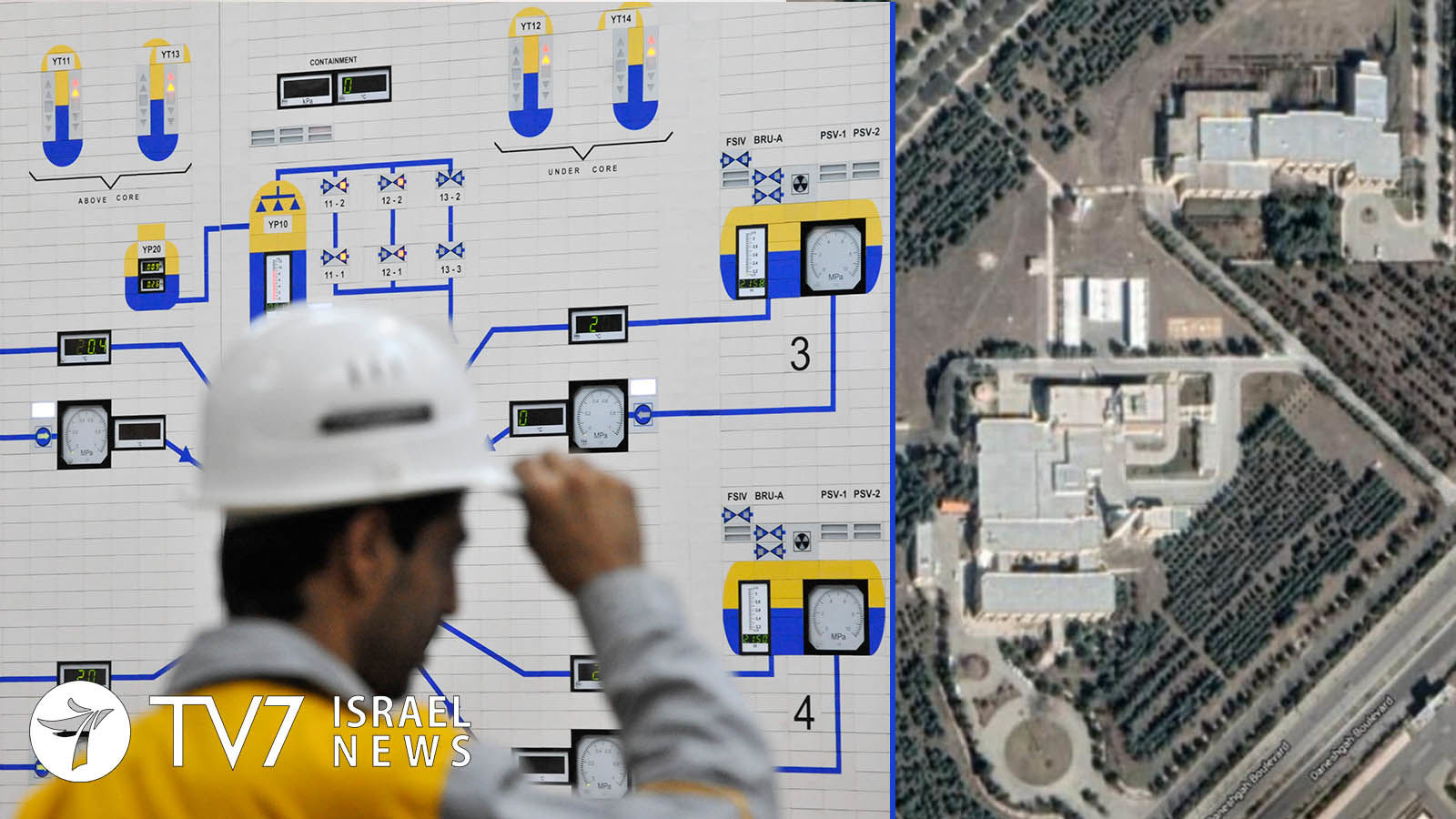It has been reported that officials from Israel and the United States met to discuss a back-up, so-called “Plan B” response in the event that diplomatic efforts to bring Iran back into compliance with the 2015 Joint Comprehensive Plan of Action (JCPOA) agreement fail to yield desired results.
By Jonathan Hessen and Erin Viner
Tehran held indirect talks with Washington in Vienna in April to June this year, although the negotiations have yet to be resumed following the election of new Iranian President Ebrahim Raisi.
Earlier this month, IDF Chief of Staff Lt. Gen. Aviv Kochavi revealed that Jerusalem has “greatly accelerated” preparations for action against Tehran’s nuclear development program.
“A significant chunk of the boost to the defense budget – as was recently agreed – is intended for this purpose. It’s a very complicated job, with much more intelligence, much more operational capabilities, much more armaments. We’re working on all these things,” the IDF chief said in an interview published by Walla News.
Stressing that “Iran is only 2 months away from acquiring the materials necessary for a nuclear weapon,” Lt. Gen. Kochavi said Israel must have “a viable ‘Plan B’ in order to stop Iran in its tracks” from reaching atomic bombs capability while it remains unclear if the Ayatollah regime intends to negotiate a new agreement with the international community.
Brigadier General (res) Relik Shafir affirmed that Jerusalem has the capability to severely damage Iran’s nuclear program while stressing the gravity of such action.
Gen. Shafir. was one of 8 Israeli Air Force (IAF) pilots who destroyed Iraq’s Osirak nuclear reactor on 7 June 1981.
In an exclusive interview with TV7 Israel: Watchmen Talk host Amir Oren, Shafir said that Israel would be able to overcome deliberate efforts by the Islamic Republic to repel foreign attacks on its atomic facilities.
“I think the Iranians have planned their nuclear program in such a manner that it would take weeks, probably, of intensive warfare to neutralize their capabilities for a long time. It would take air superiority; it would take bombing of well dug sites that are spread all over Iran to make the blow such that it was irrecoverable,” he said, going on to advise, “We should think of it that way, that as far as the Air Force is concerned, a target – if it is important enough to take out, then the Air Force knows how to channel its energy towards that particular mission. So, I would say yet, it is doable – a lot of damage – with a price that we have to be ready to pay.”
General Shafir estimated that at least 25% of IAF service members would need to be involved in the execution of such an offensive operation, that he cautioned should only be exercised as a last option.
“We should look at a worst analysis case, and a worst analysis case would lead the thought of whether it is worthwhile or not.” Going on to reference the 1949 film “12 O’Clock High” and the death of some 40,000 air crew over Europe during the Second World War – higher than the casualty of ground troops – Gen. Shafir said, “we should understand that this may be the price” of such a mission.
Meanwhile European Union Foreign Policy Chief Josep Borrell stressed during a conversation with his new Iranian counterpart Hossein Amir-Abdollahian on the sidelines of the United Nations General Assembly (UNGA) in New York the urgency for the Islamic Republic to resume the Vienna nuclear talks. The EU later issued a statement that, “The Iranian Foreign Minister assured of the willingness to resume negotiations at an early date.”
Addressing the issue in a pre-recorded statement broadcast to the UNGA, Saudi Arabia’s King Salman Abdulaziz al-Saud highlighted his “support for international efforts aiming at preventing Iran from having nuclear weapons.” While expressing interest in improving Riyadh’s relations with Tehran, the Saudi Monarch underscored the need for the Ayatollah regime to abandon support of its “terrorist organizations and sectarian militias” that have wreaked mayhem throughout the Middle East and beyond.
“Iran is a neighboring state, and we hope that our preliminary talks with it will lead to concrete results to build trust and to pave the way to achieve the aspirations of our citizens in establishing a cooperative relationship based on a commitment to the principles and resolutions of international legitimacy, respect for sovereignty, and noninterference in internal affairs,” said King Salmon, while demanding his Kingdom’s “call on Iran to stop its support for terrorist organizations and sectarian militias which have not brought anything but war, destruction, and suffering for all the peoples of the region.”
Alluding to the Saudi-led military offensive in Yemen against the Iranian-backed Houthi rebels who routinely launch cross-border attacks on his country, the King said that while Riyadh “is consistently committed to the principles and resolutions of international legitimacy” and “respects the national sovereignty of all states,” it also “stresses the need for non-interference in the internal affairs of countries” and “retains its legitimate right to self-defense in the face of the ballistic missile, drone, and explosive boat attacks and absolutely refuses any attempts to interfere in its internal affairs.”
